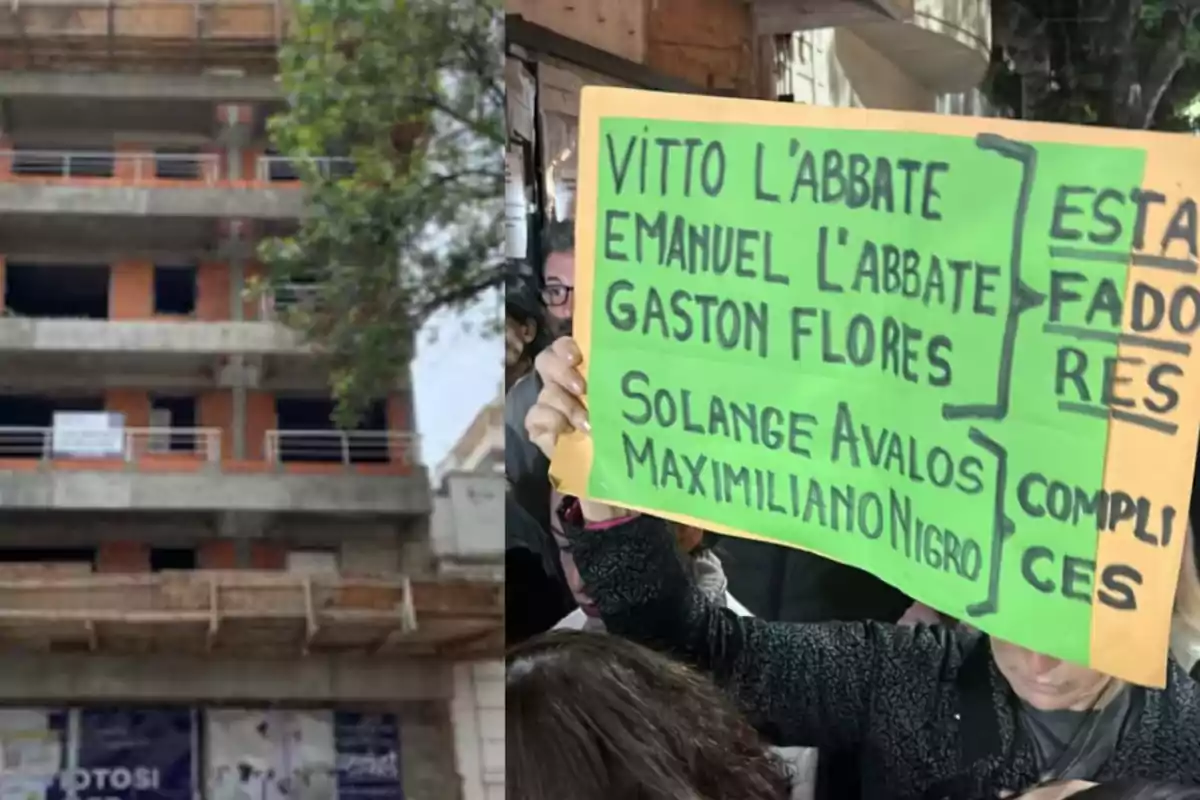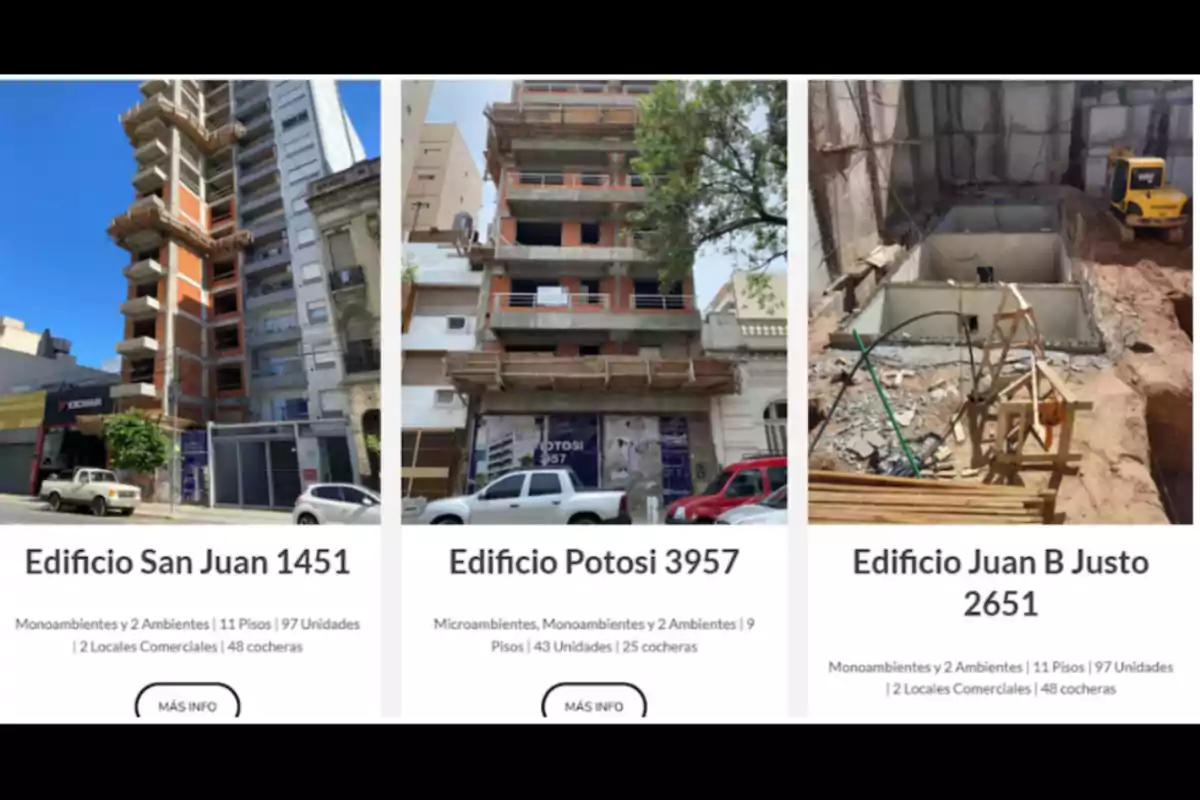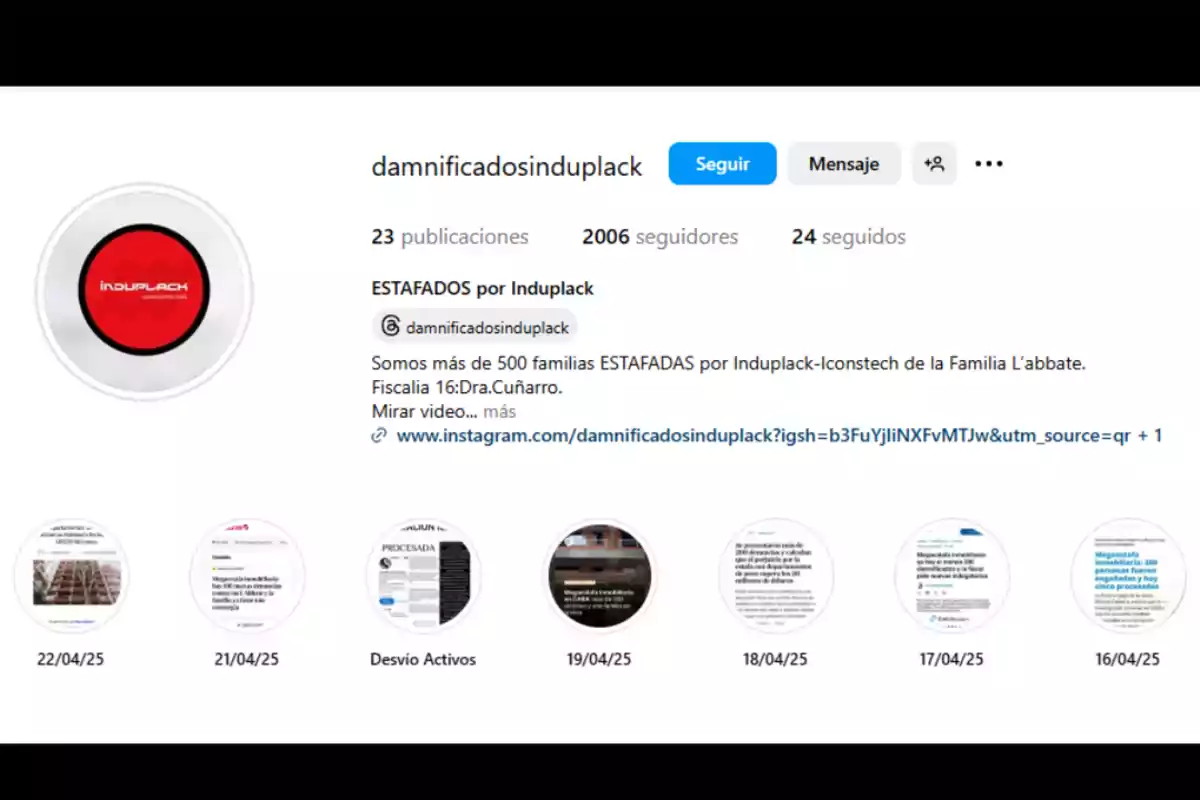
Real estate mega-scam: 200 complaints, 5 arrested, and over US$20 million lost
They promised home ownership and sold apartments up to four times
A judicial investigation revealed an alleged illicit association dedicated to defrauding hundreds of buyers through fictitious real estate projects. More than 200 people were affected, with losses amounting to over 20 million dollars.
The Justice system prosecuted five accused individuals, four of them members of the L'Abbate family, responsible for the firm Induplack Fiduciaria, and Patricio Gastón Flores, legal representative and president of Icons Tech S.A. Judge Paula González charged them with being part of a criminal structure that operated under the guise of real estate trusts.
A family network behind the fraud
The detainees, identified as Vito Antonio, Emanuel Andrés, Juan Ignacio, and Santiago David L'Abbate, were pointed out as the leaders of an organization that offered apartments "from the ground up," collected down payments, and never delivered the units. In many cases, the same property was sold up to four times.

According to the file, these operations began during the pandemic and continued until 2023. The maneuvers included the lack of deeds, unfinished or non-existent works, and the use of at least 20 linked companies to move funds and avoid seizures.
Fraudulent strategies with a legal facade
The company promoted its developments through its website, where it presented more than 30 projects in different areas of Buenos Aires City. They offered guaranteed profitability, payment facilities, and a track record that promised trust: "12 years and more than 800 units delivered."
The affected individuals, mostly workers, professionals, and retirees, found themselves trapped in a scheme reminiscent of pyramid schemes. Prosecutor Mónica Cuñarro stated that the accused "captured funds without Central Bank authorization and laundered assets through shell companies."
Among the victims is labor lawyer Juan Pablo Chiesa, who reported having bought two parking spaces and two studio apartments that he never received. "For years, the firm maintained a facade of legality while investors' money disappeared," he declared.
The prosecutor also confirmed that bank accounts were found in the United States and about 905 million pesos were seized. Additionally, a general asset freeze was ordered for the accused.
Phantom buildings and broken promises
The affected properties include locations such as Potosí 3957, Acuña de Figueroa 333, Av. Jujuy 431, among other points in the capital. In one case, a building with 48 apartments had 95 different buyers, highlighting the level of sales overlap.

The testimony of Andrea Gerez, one of the affected individuals, reflects the plight of many: "I paid for six years for an apartment that wasn't mine. I feel cheated." Like her, other victims joined on social media to raise awareness of the case under profiles like "Scammed by Induplack."
Judge González had already prosecuted the accused for at least 14 similar incidents in 2023 and 2024. At that time, a seizure of 190 million pesos was also imposed. According to the prosecution, the scheme was sustained through the continuous transfer of funds between companies in response to each civil or commercial lawsuit.
This case reopens the debate on the lack of regulation and control in the Argentine real estate market. The victims demand exemplary sanctions, greater transparency, and effective prevention mechanisms to prevent other citizens from losing their savings in fraudulent projects.
More posts: